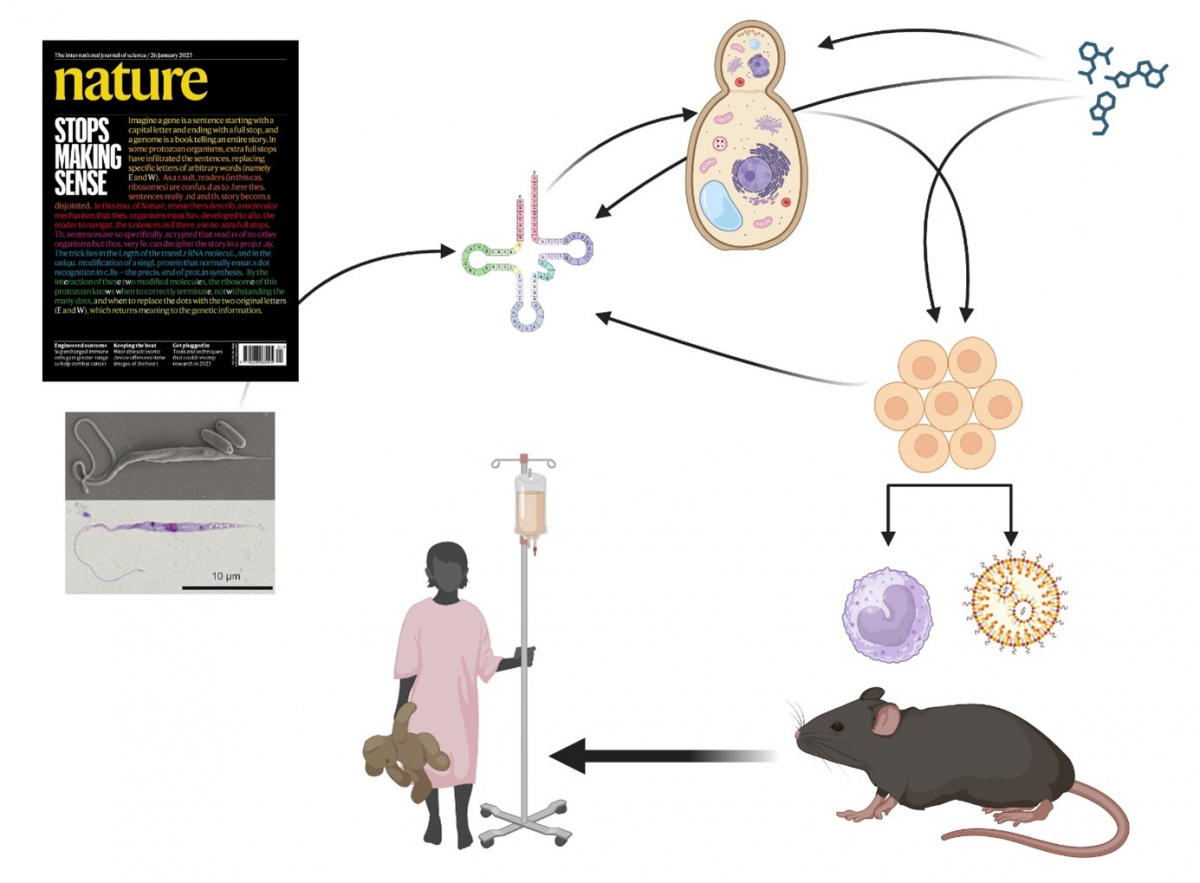
Prestigious ERC Synergy grant goes to IMIC and BC
Millions of people worldwide are affected by genetic diseases, which can result from specific gene mutations or broader genetic disruptions. Leoš Valášek from the Institute of Microbiology of the Czech Academy of Sciences and Julius Lukeš from the Biology Centre of the Czech Academy of Sciences are part of an international interdisciplinary team that will advance research into a specific type of genetic disorder known as premature termination codon.
Imagine a crossroad with traffic lights and cars driving up and down intersecting streets. Drivers leave their fingerprints on the steering wheel as they navigate through their lives. Indeed, each of us has unique fingerprints, and each of us is sometimes driving through a wave of green light before having to stop at red due to various obstacles. But only some of us are stopping and not running most of the time. We are talking about people suffering from monogenic diseases. Their health conditions are severe, yet the underlying genetic problem is often very simple. With 3Stops2Go, four researchers – Leoš Valášek and Julius Lukeš from Czech Republic, Olivier Namy from France, and Mark Osborn from the USA – have teamed up to form an initiative aiming to ameliorate the number of red lights these people face daily!

These diseases include Cystic fibrosis (CF), Fanconi anemia (FA), Hurler syndrome (MPS-IH), Duchenne muscular dystrophy (DMD), Epidermolysis Bullosa (EB), etc. The common denominator of all of them is a specific type of mutation, known as a premature termination codon (PTC). PTCs cause early termination of protein synthesis of essential human genes, leading to truncated, non-functional proteins. They are responsible for approximately 11% of genetic diseases in general.
From protists to patients
The 3Stops2Go grant recipients found their main inspiration in nature when they discovered specific species among single-celled organisms called protists, which have alternative genetic codes and can carry many PTCs in their genes while remaining fully viable. This is due to a specifically altered structure of small RNA molecules called tRNAs, which are essential for protein synthesis. Based on these findings, they plan to develop specific tRNAs and other tools to bypass genetic errors in organisms with common genetic codes, such as humans. They then intend to examine these tools on monogenic PTC disease cells derived directly from children’s patients suffering from these diseases and on a mice model with PTC causing Hurler syndrome. The long-term vision, extending beyond the scope of this research initiative, is to leverage these tools to pave the way for clinical applications.

“In the standard genetic code, there are three stop codons that signal the end of protein synthesis. The name of our project, ‘3Stops2Go’, refers to these three stops that must be overcome so that these patients can also enjoy riding the green wave,” explains project leader Leoš Valášek from the Institute of Microbiology of the Czech Academy of Sciences. His laboratory focuses on the regulation of gene expression—specifically, the translation of genetic information, in which transfer RNA (tRNA) plays one of the main roles. “tRNA is a kind of carrier of building blocks for proteins. Our goal is to develop highly effective and specialized tRNA that will be able to bring the original building block to the PTC site. This will prevent the ribosome from stopping, allowing the formation of undamaged protein,” adds the scientist.
“We recently discovered and described a unique parasitic protist, Blastocrithidia nonstop, which has turned its genetic code upside down. Most of its genes are full of stop codons, which are like imaginary red stop signs. In order to produce proteins and remain fully viable, it has developed a structurally unique tRNA,” says Julius Lukeš, a parasitologist at the Biology Center of the Czech Academy of Sciences, adding: “We have described exactly how it does this in the journal Nature. Serendipitously, this study brought us all together, so with colleagues from France and the US, with whom we worked for about two years not only on preparing this joint grant, but also on preliminary experiments.”
A unique combination of skills and expertise across various disciplines
Each of the 3Stops2Go grantees is an expert in a different field, such as protist biology, tRNA biology, protein synthesis, disease pathology, gene therapy, and drug development. Therefore, to achieve this ambitious goal, they have synergized to create an international and interdisciplinary team that transcends Atlantic ocean boundaries.
Contact:
Dr. rer. nat. Leoš Valášek, DSc., MAE
Institute of Microbiology of the Czech Academy of Sciences
prof. RNDr. Julius Lukeš, CSc.
Biology Center of the Czech Academy of Sciences












